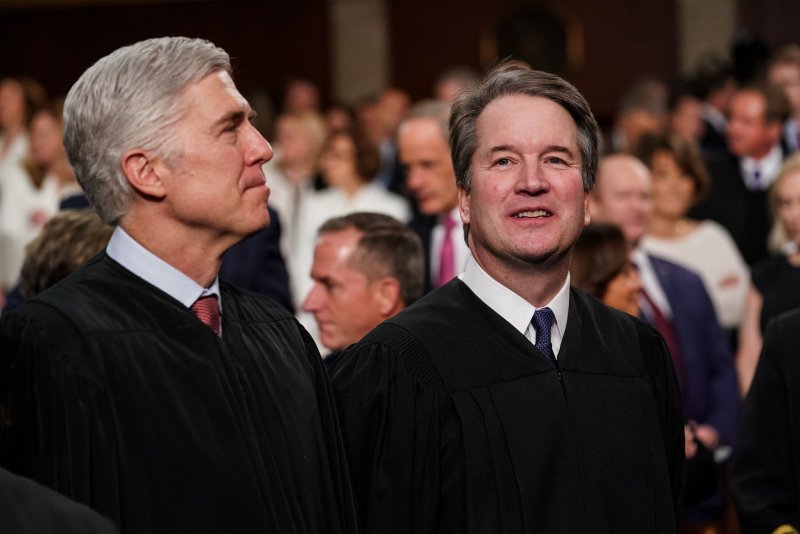Supreme Court Justice Neil Gorsuch (L) joined Justice Brett Kavanaugh Monday in a rebuke of the New Jersey Supreme Court over tax-funded historic preservation grants for churches. File Photo by Doug Mills/UPI |
License Photo
March 5 (UPI) -- The U.S. Supreme Court has declined to hear a New Jersey case over spending state funds on historical preservation projects for churches.
That means the New Jersey Supreme Court decision will stand: that a Morris County practice of giving tax-funded historical preservation grants to churches violates the state constitution.
The Freedom from Religion Foundation sued the county over the 16-year-old practice and the New Jersey Supreme Court ruled in its favor last April.
Although the U.S. Supreme Court did not take the case, its newest justice, Brett Kavanaugh, wrote a stinging rebuke of the New Jersey high court decision, saying it was "in serious tension" with past U.S. Supreme Court decisions.
"Barring religious organizations because they are religious from a general historic preservation grants program is pure discrimination against religion," Kavanaugh wrote in a five-page statement, joined by Justices Neil Gorsuch and Samuel Alito.
"At some point, this court will need to decide whether governments that distribute historic preservation funds may deny funds to religious organizations simply because the organizations are religious," Kavanaugh wrote.
Still, Kavanaugh said he agreed with the court's decision to decline the case because of "factual uncertainty" about the scope of the Morris County grant program that could hinder the court's ability to examine the issue.
The Freedom from Religion group said in a statement that Kavanaugh was mistaken about the case's facts.
"The facts of this case are actually clear and have never been in dispute," the foundation wrote on its website. "Second, the three justices asserted that the law still needs development on the question of 'whether governments may exclude religious organizations from general historic preservation grants programs.' This twists the facts of the case, which involves the right of taxpayers not to be forced to fund active houses of worship."















